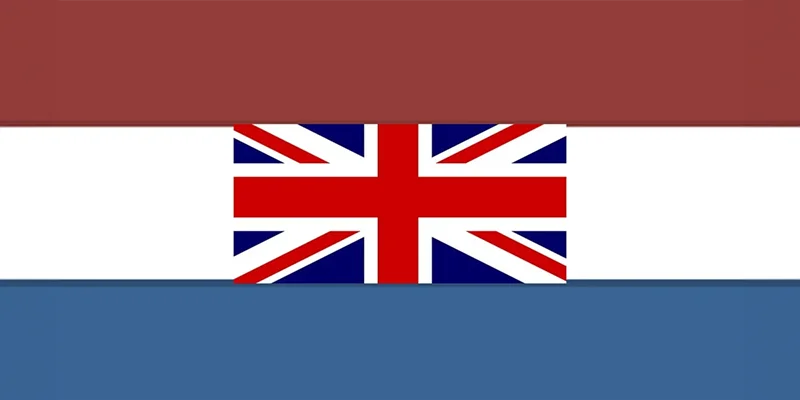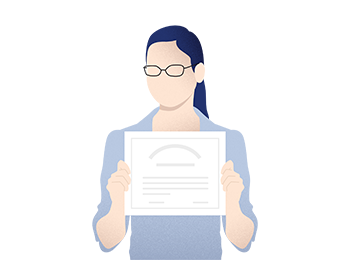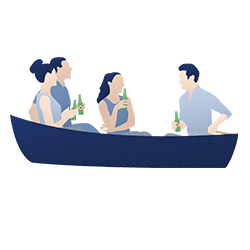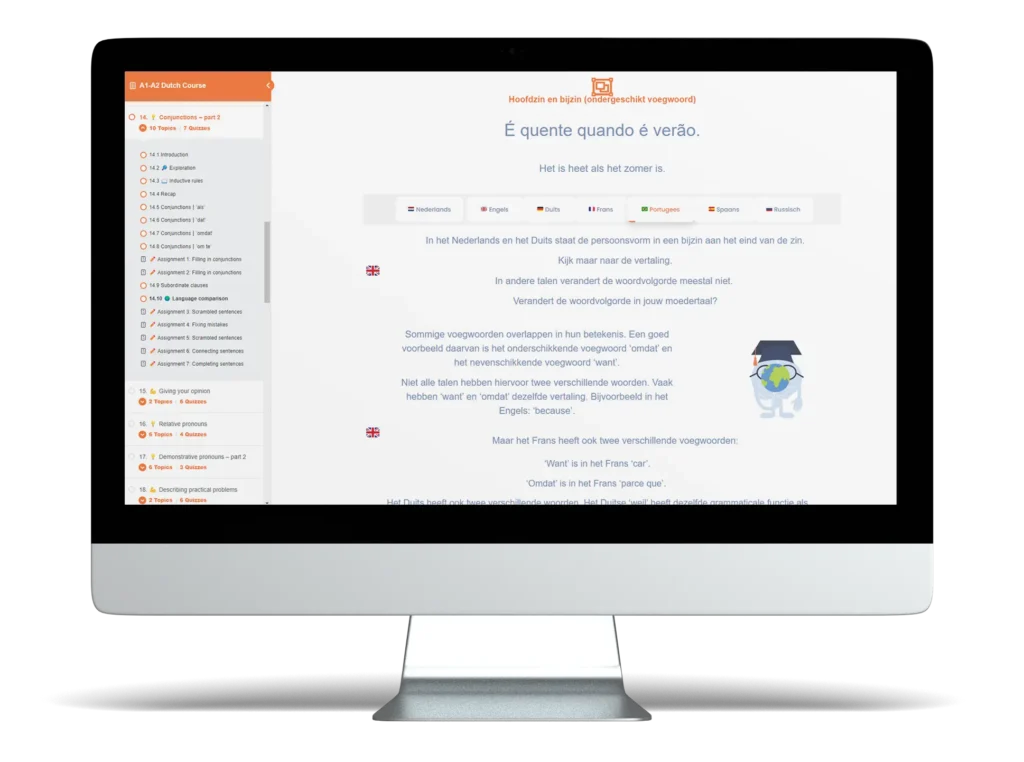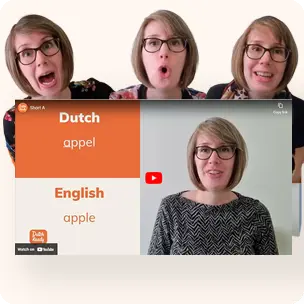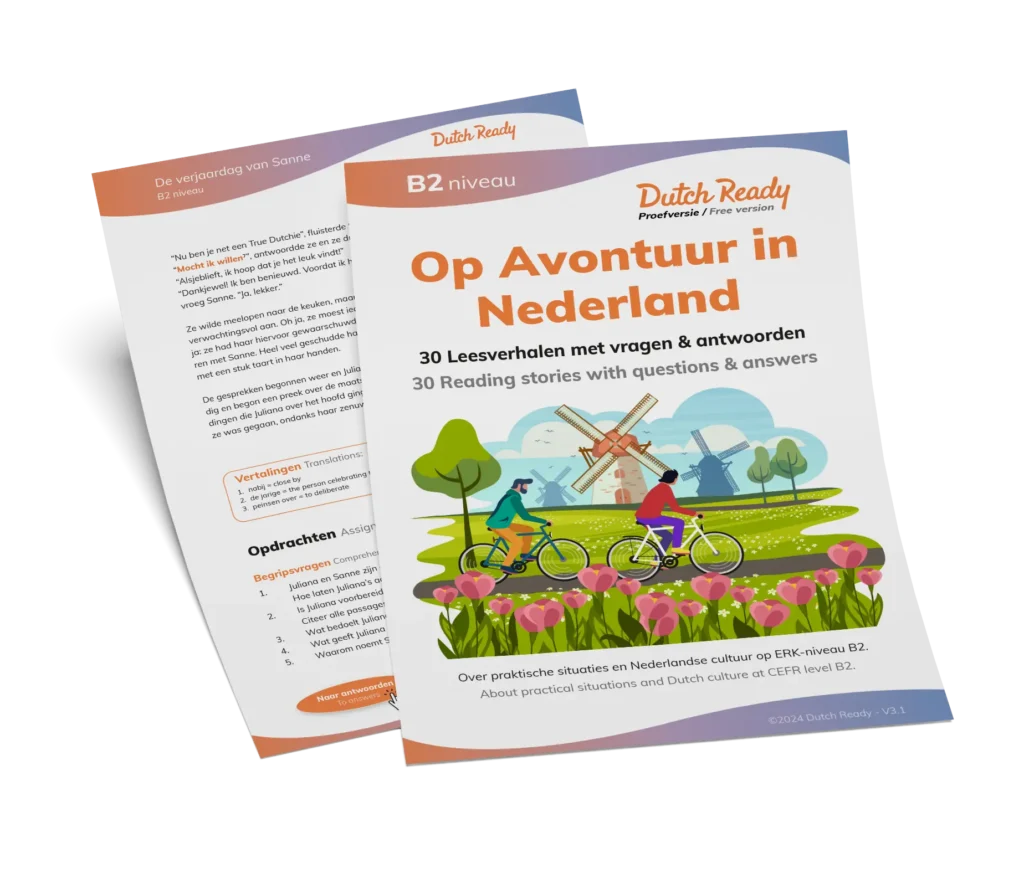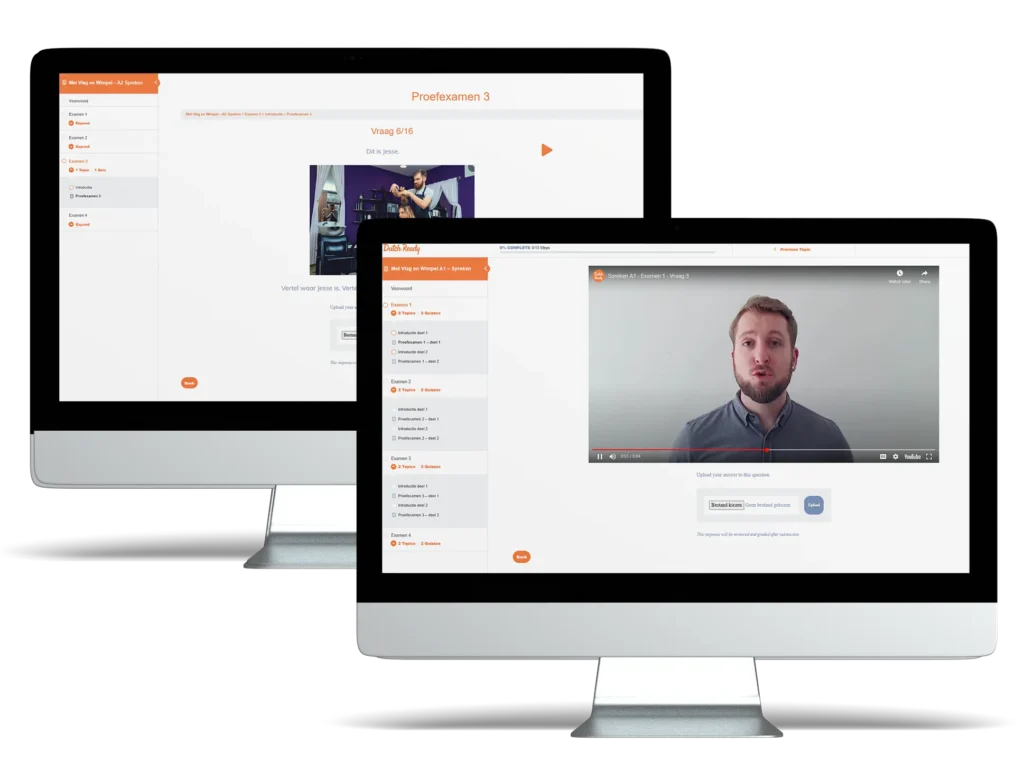Is Dutch similar to English?
Dutch usually comes across as a difficult language to learn. All those harsh “g”-sounds, unusual letter combinations and hundreds of strange sayings might not make it very appealing to take on. It will surprise you to know that Dutch is quite similar to English though, mainly in terms of grammar and vocabulary. We’ll dive into the language family that Dutch belongs to and will show you various examples of Dutch similarities to English. After which of course, we hope to have convinced you of learning our beautiful language yourself! Or at least made it a little easier.
A short history of the Dutch language
Dutch is part of the Indo-European Language Family and is considered to be a West Germanic language, together with English, German, Afrikaans, Yiddish, Luxembourgish, Frisian (yes, that other language they speak in The Netherlands), and Scottish. At the same time, West Germanic has strong similarities to North Germanic which includes languages such as Danish, Norwegian and Swedish.
The earliest Dutch dates back to the 6th century and modern Dutch is currently spoken by approximately 23 million people in the world. The word “Dutch” comes from the word “Deutsch” in modern German, and up until the 16th century, “Dutch” was used to refer to any Germanic language (which is why German speakers in Southeastern Pennsylvania are still called the Pennsylvania Dutch). The Dutch refer to their own language as “Nederlands”, with the standard language being split into hundreds of various dialects.
Of all West Germanic languages, English, Dutch (and Frisian) are considered to be most similar. Both languages have abandoned the grammatical case system which German still uses, tenses and verb conjugations follow some of the same patterns, and vocabulary knows tons of similarities, which is exactly what we will focus on in this article.
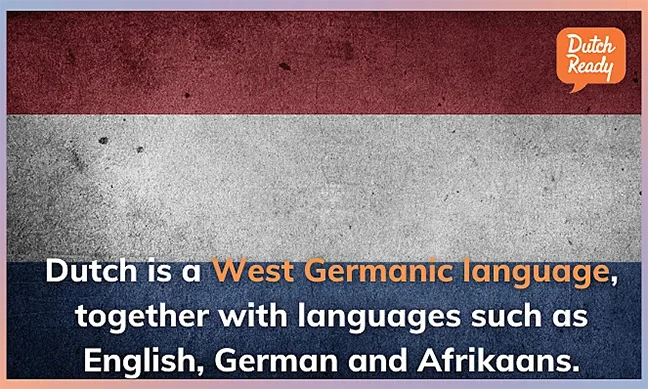
Dutch similarities to English - Cognates & Loanwords
It might not always sound like the vocabulary between English and Dutch is the same, but once you start to learn Dutch you’ll notice that there are tons of similarities to be found. We will make a distinction between cognates (words that have a shared origin and are therefore very similar), and loan words (Dutch words permanently adopted from English).
Dutch cognates
By focusing on those Dutch words that are similar to English, you’ll find it gets much easier to expand your vocabulary. And mind you, there are a lot of those. We’ve listed a few examples of Dutch – English cognates:
English
The beard
Dutch
De baard
English
The hair
Dutch
Het haar
English
The price
Dutch
De prijs
English
The island
Dutch
Het eiland
English
The shoulder
Dutch
De schouder
English
The snow
Dutch
De sneeuw
Dutch loan words
Besides words that look similar, many Dutch words are taken straight from English and are therefore exactly the same. Be mindful however: the Dutch may still pronounce words a little differently, even when they are spelled the same. A couple of Dutch loan words are:
English
The details
Dutch
De details
English
The model
Dutch
Het model
English
The journalist
Dutch
De journalist
English
The code
Dutch
De code
English
The laser
Dutch
De laser
English
The student
Dutch
De student
You’ll find that many of the “newer” words are taken directly from English. Think of “computer” for example, or “wifi” and “hashtag”. A tiny bit lazy yes, but at the same time very easy when learning the language. All of it is Dutch that you secretly know already.
Want to start practicing? We have compiled an Easy Vocab tool Dutch-English for you, which you can download for free from our website. The list contains more than 3000 words, conveniently organized into categories. In the tool you will also find an overview of suffix and prefix rules and in addition, all verbs from the list are conjugated in three different tenses. With Dutch Ready’s Easy Vocab, you have everything you need to kickstart your Dutch vocabulary.
Dutch pronunciation
As with vocabulary, many people also think that the pronunciation of Dutch is very different from English. But even here, you will be surprised how many similarities exist. Even the notorious Dutch g/ch sound can be found in several English words, such as ‘Loch Ness’. Of course, this doesn’t mean that Dutch pronunciation is a piece of cake. To get you off to a good start, we have developed sound comparison cards in 15 different languages. You can download them completely for free from our website. Do you want to polish your pronunciation to the max? In our Pronunciation & Spelling Module you’ll find detailed instructions from a speech therapist as well as practical exercises on each sound. Roll up your sleeves and get started!
Dutch similarities to other languages
Apart from the obvious similarities between Dutch and English words, Dutch also adopted plenty of words from other countries. Take French for example; even though this language is not part of the West Germanic family, there are plenty of similarities to be found due to the Dutch and French shared history. Such as:
French
L’accessoire
Dutch
De accessoire
French
La lingerie
Dutch
De lingerie
French
Le parapluie
Dutch
De paraplu
And then there is German of course:
German
Sowieso
Dutch
Sowieso
German
Überhaupt
Dutch
Überhaupt
German
Der Käse
Dutch
De kaas
The fact that the Dutch have always been internationally focussed, definitely helps with learning the language. As a Danish, Swedish and even Spanish or Italian native, you will always find plenty of similarities in vocabulary between your own language and that of the Dutch.
False Friends
The fact that Dutch has lots of loanwords coming from English among others, will make your life a bit easier when studying the language. Be aware though: some words that seem the same, really aren’t! We call these types of words “false friends”, meaning that some of them might sound equal in two languages, but mean a completely different thing.
To show you some examples of what we mean, we’ve gathered a couple of false friends between Dutch and English:
- Magazine (EN) > Magazijn (NL). Magazijn means warehouse
- Rare (EN) > Raar (NL). Raar means weird
- Meaning (EN) > Mening (NL). Mening means opinion
- Brave (EN) > Braaf (NL). Braaf means obedient
- Dapper (EN) > Dapper (NL). Dapper means brave
- File (EN) > File (NL). File means traffic jam
- Glad (EN) > Glad (NL). Glad means slippery
- Trap (EN) > Trap (NL). Trap means stairs
- Slim (EN) > Slim (NL). Slim means smart
- Small (EN) > Smal (NL). Smal means narrow
So there you go, while there still are various differences to find between English and Dutch, it’s very easy to build a large vocabulary in Dutch by using what you already know from other languages.
At Dutch Ready, we tend to focus on these similarities to make things easier. Not just for vocabulary, but for grammar, verb conjugation, pronunciation, and the rest too. Combine this with private Dutch lessons, and you’ll be speaking Dutch in just a matter of months.
Ready to get started? Buy a Dutch test lesson and and set your first steps with the tutor we carefully matched with you!

